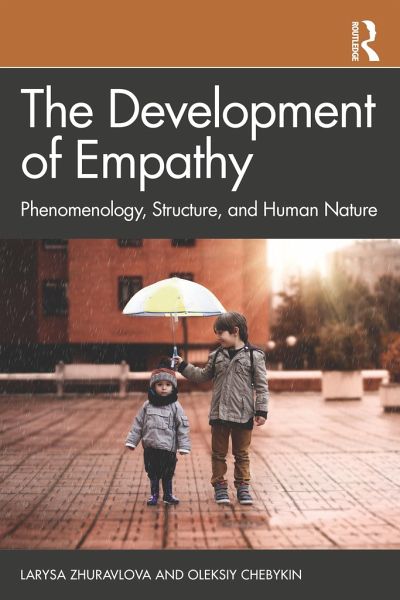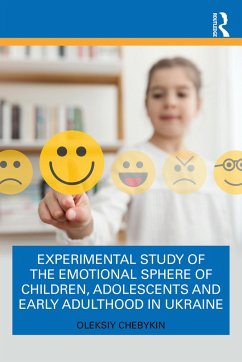
The Development of Empathy
Phenomenology, Structure and Human Nature
Versandkostenfrei!
Versandfertig in 6-10 Tagen
43,99 €
inkl. MwSt.
Weitere Ausgaben:

PAYBACK Punkte
22 °P sammeln!
This thought-provoking volume offers psychological perspectives on the formation of empathy and how this determines both antisocial and prosocial behaviors in individuals. It offers a theoretically grounded and empirically proven integrated approach, helping readers gain a holistic understanding of human nature and the need for empathic interaction between people.Larysa Zhuravlova and Oleksiy Chebykin study the evolution of empathy, peculiarities from birth to old age, and its role in the moral and spiritual development of a person. Key sections explore theoretical and methodological principle...
This thought-provoking volume offers psychological perspectives on the formation of empathy and how this determines both antisocial and prosocial behaviors in individuals. It offers a theoretically grounded and empirically proven integrated approach, helping readers gain a holistic understanding of human nature and the need for empathic interaction between people.
Larysa Zhuravlova and Oleksiy Chebykin study the evolution of empathy, peculiarities from birth to old age, and its role in the moral and spiritual development of a person. Key sections explore theoretical and methodological principles of empathy research, the genesis and development of human empathy, the phylogenetic preconditions for empathy, the psychological features of the ontogenesis of empathy, the key factors in personality development, and the experimental study of empathy.
Considering a vision of a society based on empathic relationships, which could deter discrimination, help resolve environmental issues, harmonize interpersonal relationships, and resolve conflict, this new text is for advanced students of developmental and educational psychology. It will have broad appeal across academic and applied discipines in social and developmental psychology, education, the helping professions, and human development.
Larysa Zhuravlova and Oleksiy Chebykin study the evolution of empathy, peculiarities from birth to old age, and its role in the moral and spiritual development of a person. Key sections explore theoretical and methodological principles of empathy research, the genesis and development of human empathy, the phylogenetic preconditions for empathy, the psychological features of the ontogenesis of empathy, the key factors in personality development, and the experimental study of empathy.
Considering a vision of a society based on empathic relationships, which could deter discrimination, help resolve environmental issues, harmonize interpersonal relationships, and resolve conflict, this new text is for advanced students of developmental and educational psychology. It will have broad appeal across academic and applied discipines in social and developmental psychology, education, the helping professions, and human development.














